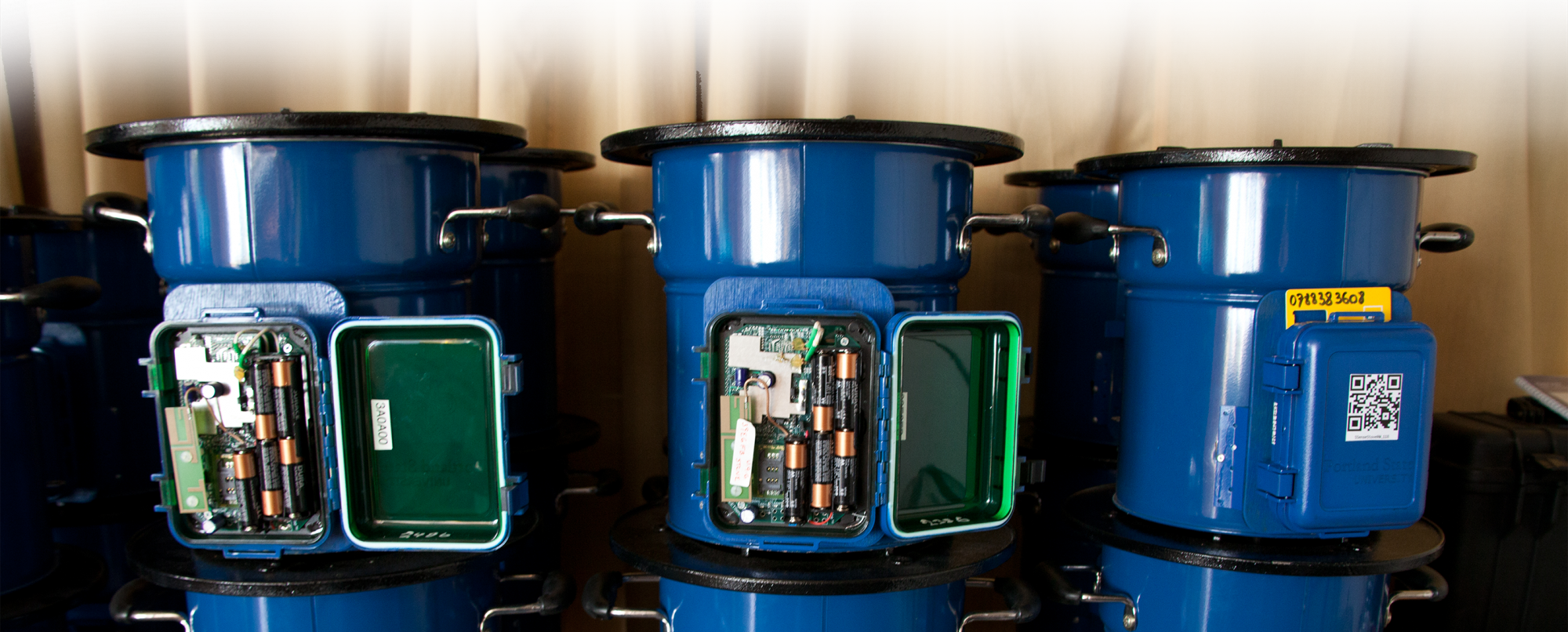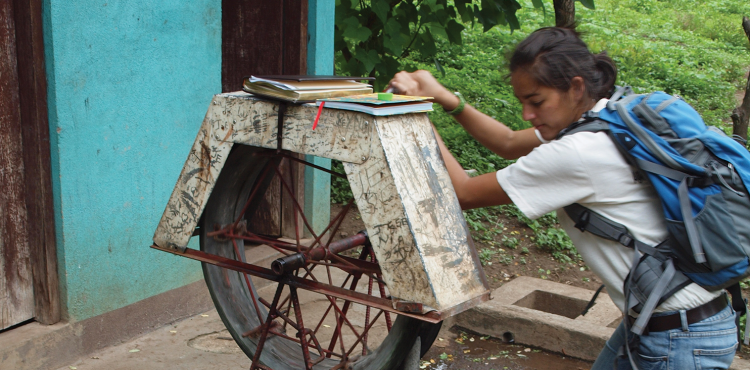
.
New director wants CU to be the destination for research into global engineering solutions
Evan Thomas is the type of leader who will speak passionately for hours in support of his projects, team and vision with little need for breaks — mental, breathing or otherwise.
It’s an admirable trait—doubly so, given that you can tell he believes deeply every word he says about the work the Mortenson Center in Engineering for Developing Communities has done and will do around things like clean water, sanitation and disaster resiliency.
Thomas took over as director of the Mortenson Center in summer 2018. Since then, he has outlined significant changes to the center’s research and teaching, and advocated for recruiting students from all engineering departments, as well as outside entities like the Colorado School of Public Health.
Those changes, paired with a plan to dedicate space on East Campus for global engineering research, are all part of his goal to make the center the preeminent education and research destination for engineers who want to make a positive global impact.
“It’s more and more obvious that engineers will play an important role in poverty reduction around the world, especially in the face of a changing climate,” Thomas said. “This is a growing field and a clear need. The passion is here—the challenge is identifying what our appropriate role and contribution should be.”
Over the next year, Thomas hopes to break the center’s curriculum into one-credit modules, making it more customizable and accessible to students across CU Boulder. The addition of lab space will open new opportunities, as well, including a dedicated space to develop and validate technologies in areas like air and water quality.

“We are keeping everything the center had, but dramatically increasing our portfolio of projects and practice,” he said. “Our goal is to work at the interface between implementers and policymakers, improving the technologies, methods and evidence base in global engineering.”
Thomas, who is also an associate professor in the Environmental Engineering Program, has a long history with CU Boulder, stretching back to 2001, when he began his undergraduate degree in aerospace engineering and joined the newly created Engineers Without Borders chapter.
Both EWB and the Mortenson Center were founded by Distinguished Professor Bernard Amadei, whom Thomas considers a mentor.
“EWB-CU and EDC unearthed this latent passion among engineers and engineering students. Up until that point, there weren’t well-established programs to train engineers to participate in these global challenges,” Thomas said.
Thomas’ career has followed two parallel paths—one as an entrepreneur starting companies working in global health, the other as a researcher in the same area.
His résumé includes time at the NASA Johnson Space Center developing water and air quality technologies for spacecraft. He also held a faculty position at Portland State University and the Oregon Health and Science University, where his research team began monitoring the water supplies for over a million people in Kenya and Ethiopia using satellite-connected sensors developed through his company, SweetSense Inc.
Thomas’ research and field team are now based at CU and have overlapping partnerships with a $15 million United States Agency for International Development grant run through the Mortenson Center with professors Karl Linden and Amy Javernick-Will as the principal investigators. This partnership has enabled students from the center to work in Uganda, Ethiopia and Kenya alongside professional organizations and community partners.
Engineering in Developing Communities from a Different Angle
The Mortenson Center isn’t the only CU Engineering program focused on tackling some of the world’s most important engineering problems. The Information and Communication Technology for Development graduate program in the ATLAS Institute teaches students to be creative problem solvers, finding effective and culturally appropriate solutions to issues like poverty, digital development and the effects of climate change.
 Students in the program come from a variety of backgrounds and disciplines and explore an open-ended curriculum. Master’s student Babatunde Adegoke came to CU Boulder from Nigeria after earning his bachelor’s in statistics and working with UNICEF, the Bill and Melinda Gates Foundation and Connected Development, among other nonprofit groups.
Students in the program come from a variety of backgrounds and disciplines and explore an open-ended curriculum. Master’s student Babatunde Adegoke came to CU Boulder from Nigeria after earning his bachelor’s in statistics and working with UNICEF, the Bill and Melinda Gates Foundation and Connected Development, among other nonprofit groups.
He heard about the ICTD program while visiting Colorado to observe the 2016 general election. During his visit, he met CU Regent Kyle Hybl, who encouraged him to look into attending the university. With his experience in web design, field management and more, he found the program was a good fit for the question he wanted to answer — what makes technology work for the people?
“Having witnessed the failure of different startups, including mine, and seeing how the technology works better in the USA, I wanted to know why that was, because I want to deploy platforms later and see them succeed,” Adegoke said. “The ICTD program not only showed me why these things don’t work, but I could also see the patterns developing through our case studies.”
Adegoke said many of the great inventors and thinkers he admires weren’t specialists. By giving him avenues to explore his strengths, the ICTD program reinforced that he didn’t need to be one, either.
“Over the semester, I have taken a lot of courses where you didn’t think they were related but they are,” he said. “I have the ability to choose whatever courses I want. I am able to find answers to all the questions that I have. So when I am designing technology solutions to problems now, I have better tools to do that.”
A main component of the program is a final field-based practicum semester, during which students work with nongovernmental organizations on real-world projects. Adegoke plans to do his practicum this summer with a consulting agency. From there, he plans to get an internship with a consulting group, learning from “the best, building a network of contacts and looking into funding to start my own consulting group.”
Adegoke said the ICTD program was unique and worthy of attention from engineers of all backgrounds and career paths.
“The majority of engineers are going to find themselves solving a problem,” he said. “First, they have to understand why they are building a system for that problem and for who — not just build another system. We have enough systems already, and the problems still persist. What we need are problem solvers who understand the people they are trying to help.”
Other ICTD graduates include artists, computer scientists and political scientists. Past final projects include teaching coding to girls from low-income families, and documenting and sharing stories about climate change through still and video images.


